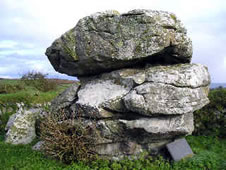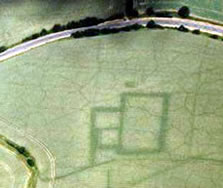After the smartphone-maker was blacklisted by America, analysts thought the results would be painful. But the pain has yet to materialise
Last night was Tap Night for Yale’s secret societies, which now number in the dozens. Take our quiz and see if you can decide whether Red Mask, Arcturus, Raven, and 27 others are Yale societies or metal bands.
Where's your Material, Girl?
People are now voting for Nigel Farage as Rear of the Year
I100.INDEPENDENT.CO.UK
A Second Child? Many Couples in China Will Pass

By DAN LEVIN
A relaxing of the one-child policy will allow two children when only one parent is an only child, but the cost of child-rearing has given some couples pause.
We take a look at the worst of the recent scandals involving oversharing via e-mail and texts.
QUOTATION OF THE DAY
"If
you get milk from an unscreened sharer, you put your child at risk. I
hate to say this to an informal sharer, because they are trying to do
good. But they are playing a game of Russian roulette."
KIM UPDEGROVE,
president of the Human Milk Banking Association of North America, on
the risks of sharing breast milk. What Makes People Overshare?29
Illegally Uploaded Movies Crop Up Again on YouTube
Walker Evans (1903-75) is known for the consummate lucidity of his images of sharecroppers and weathered Southern architecture.
沃克·埃文斯(Walker Evans, 1903–1975)最出名的是佃農和南方建築的斷壁殘垣,清晰的畫面展現出高絕的技藝。
protrude

(verb) Extend out or project in space.
Synonyms:
jut, stick out, project
Usage:
His huge bones seemed to protrude from his body; his elbows were so sharp that they appeared to jut out through the arms of his shabby coat.
on Page 65:
" ... Gaitskell, which suggested the centrist policies of the time). When unemployment again reared its head in 1959-60"
A Warming Planet Struggles to Feed Itself
By JUSTIN GILLIS
As global warming puts stresses on farmers feeding a growing world population, financing to develop new crop varieties and new techniques has been slow to materialize.
A Phrase A Week
Crop up
Meaning
To emerge or occur incidentally or unexpectedly.
OriginThe word crop has several meanings. As a noun it is a swelling on the body, or any rounded or swollen item, for example a bird's gullet, the seed head of a ripe plant or the the rear end of a horse. As a verb it means 'to cut the top or sides off' or 'to gather in' (as in cereal crops). A less well-known meaning is 'to protrude from the earth's surface'.
 The context of early printed examples of the term 'crop up' doesn't help us decipher whether that 'crop' is an allusion to the growth of crops or to the 'swollen' meaning. That is because the things that were first said to have 'cropped up' were rounded items which protruded from the ground, i.e. rocks.
The context of early printed examples of the term 'crop up' doesn't help us decipher whether that 'crop' is an allusion to the growth of crops or to the 'swollen' meaning. That is because the things that were first said to have 'cropped up' were rounded items which protruded from the ground, i.e. rocks. The term 'crop up' has been used since at least the 17th century by miners, geologists etc. to refer to rocks that break the earth's surface - literally, outcrops. The Stuart nobleman Dud Dudley, in Metallum Martis, 1665, a record of mining in the English Black Country region, referred to the 'cropping up' of coal:
"The coles ascending, basseting, or as the colliers term it, cropping up even unto the superfices [surface] of the earth."The later use of the term 'crop up' in its figurative 'emerge unexpectedly' meaning seems quite a natural progression. The Proceedings of the Royal Asiatic Society, 1832, include a citation that could easily be read as having a figurative rather than literal meaning, if it weren't for the geological context.
"Grey-wacke, and slaty limestone, conformably stratified, crop up above the ocean in the Booming isles to the north."A more obvious figurative version appeared a few years later, in Benjamin Disraeli's Coningsby, or the new generation 1844:
"We shall have new men cropping up every session."
 Coincidentally, crops still feature in the language of geologists and archeologists, in the form of crop marks. These are the lines which are created by variations in the growth of plants caused by buried rocks or archeological remains. Although difficult to see from the ground, crop marks materialize quite clearly when viewed from the air. They could be said, both literally and figuratively, to crop up in the landscape.
Coincidentally, crops still feature in the language of geologists and archeologists, in the form of crop marks. These are the lines which are created by variations in the growth of plants caused by buried rocks or archeological remains. Although difficult to see from the ground, crop marks materialize quite clearly when viewed from the air. They could be said, both literally and figuratively, to crop up in the landscape. See also: come a cropper.
Pronunciation: /rɪə /
rear2
Syllabification: rear
Pronunciation: /ri(ə)r/
verb- 1 [with object] (usually be reared) bring up and care for (a child) until they are fully grown, especially in a particular manner or place: he was born and reared in New York City a generation reared on video
Phrases
Derivatives
Origin
Old English rǣran 'set upright, construct, elevate', of Germanic origin; related to raise (which has supplanted rear in many applications), also to rise.rear (RISE)
verb [I or T]to ri up or to lift up:denly rose onto its back legs) when it heard the gun shot.
The lion slowly reared its head (= lifted it up) and looked around.rear (BACK) Show phoneticsadjective [before noun]
at the back of something:
There's a sticker on the rear door/window.
The horse had injured one of its rear legs.
See also rearguard.
the rear noun [S]
the back part of something:
We walked round to the rear of the house.
Two police motorcyclists brought up the rear (= formed the last part) of the demonstration.
See also rear (end).
rearmost Show phoneticsadjective [before noun] FORMAL
furthest to the back or the last in a row:
the rearmost seats on the bus
Material is a broad term for the (chemical) substance, or a mixture of substances that constitute a thing. See:-
- Materials science, a physical science
- Raw material
- Biomaterial
- Textile, sometimes referred to as "material"
- Composite material
NOUN
ADJECTIVE
Origin
Late Middle English (in the sense 'relating to matter'): from late Latin materialis, adjective from Latin materia 'matter'.
(mə-tîr'ē-ə-līz')

v., -ized, -iz·ing, -iz·es.
v.tr.
- To cause to become real or actual: By building the house, we materialized a dream.
- To cause to become materialistic: "Inequality has the natural and necessary effect . . . of materializing our upper class, vulgarizing our middle class, and brutalizing our lower class" (Matthew Arnold).
- To assume material or effective form: Their support on the eastern flank did not materialize.
- To take physical form or shape.
- To appear, especially suddenly. See synonyms at appear.
materializer ma·te'ri·al·iz'er n.
USAGE NOTE In its original senses materialize is used without an object to mean "to assume material form," as in Marley's ghost materialized before Scrooge's eyes, or with an object to mean "to cause to assume material form," as in Disney materialized his dream in a plot of orchard land in Orange County. But these uses are probably less common nowadays than two extended senses of the verb. In the first, the meaning is roughly "to appear suddenly," as in No sooner had we set the menu down than a waiter materialized at our table. Some critics have labeled this use as pretentious or incorrect, but it has been around for more than a century, appears in the writing of highly respected writers, and seems a natural extension of the original sense. The second meaning is "to take effective shape, come into existence." In this use, materialize tends to be applied to things or events that have been foreseen or anticipated, and usually occurs in negative constructions: The promised subsidies never materialized. It was thought the community would oppose the measure, but no new objections materialized. While objections continue to materialize against this usage, it too is well established in reputable writing and follows a familiar pattern of metaphoric extension.
share
Phrases
sharer
noun
[no object] (often as noun oversharing)
sharecrop
[動](〜ped, 〜・ping)(他)(自)((米))(土地を)物納契約で耕作する.
sháre・cròp・pershare
Phrases
share and share alike
Derivatives
shareable
(also sharable) adjective
(also sharable) adjective
sharer
noun
Definition of overshare
verb
沒有留言:
張貼留言